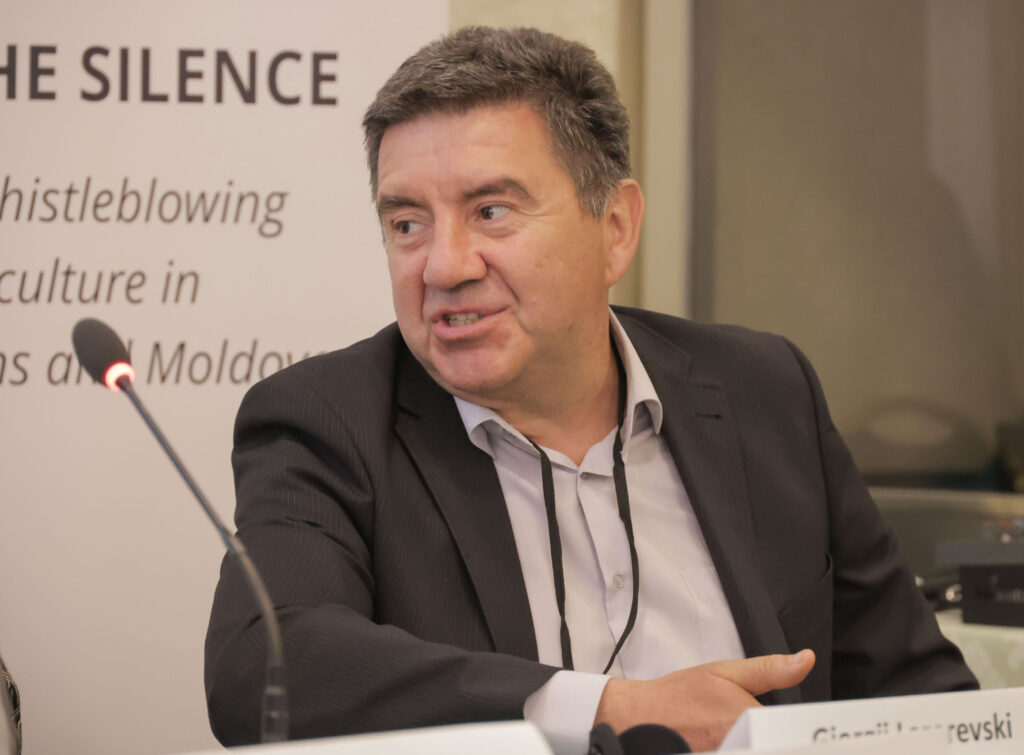SKOPJE – Macedonia was without a government when the first International Whistleblower Day was held here in March 2017. Prime Minister Nikola Gruevski had been forced from office after whistleblowers exposed his illegal wiretapping of untold thousands of political opponents, activists and journalists.
The city was awash in chaos. Low-flying black helicopters and armed military vehicles were on patrol. Every Friday afternoon at the appointed time, angry citizens flung green paint-balls at government buildings. Undercover agents harassed and detained tourists who photographed the disorder. There were even rumors of an incursion by neighboring Serbia. Judging by the empty streets, many people feared the worst.
Special Prosecutor Katica Janeva, who was investigating Gruesvki, was scheduled to speak at a Whistleblower Day press conference but was barricaded in her office by the former prime minister’s loyalists. After an hour of jockeying, Janeva’s security detail managed to get her out of the building.
Five years later Skopje is at peace, and so are the whistleblowers who helped bring down Gruesvki, who decidedly is not. Gruesvki reportedly was smuggled out of the country in the trunk of a car in 2018 and granted political asylum by Hungarian Prime Minister Victor Orban. After a third conviction and prison sentence was handed down in April 2022 – seven years for embezzling €1.3 million from his own political party – Gruevski’s days on the lam may be coming to an end.
There were no blockades at the Whistleblower Day events on May 12, 2022. One of the whistleblowers, Gjorgji Lazarevski, was greeted with handshakes, hugs and well wishes by the crowd of about 100. “There is no giving up,” a smiling Lazarevski said. “Living in fear is not living.”
Once an outcast who spent a year in jail along with fellow whistleblower Zvonko Kostovski, Lazarevski sat comfortably among government officials, diplomats and journalists who never thought this day would come. Discreetly coming and going during the event were about 15 other victimized whistleblowers. Some of them told their stories directly to the government officials they say have failed to protect them from retaliation. (WNN is withholding their identities.)
“I was literally thrown out on the street by my employer,” one said. “I asked for protection and have received no response. The government has shown no interest in my case whatsoever.”
“The reluctance to protect whistleblowers cannot be explained. Unfortunately the public agencies are frozen,” said Slagjana Taseva, the country’s most prominent anti-corruption activist. “We need to dig deeper into the problem. If we are hiding behind a tree, we are doing nothing.”
Taseva, who heads Transparency International’s Macedonian office, has faced backlash herself. Last year she lost a civil defamation case in connection with comments she made about the bankruptcy of ferro-nickel producer Feni Industries. “There are a dozen other people who are in the same position as me,” she said.
Still, others expressed hope, as every Western Balkan country now has in place a whistleblower law, an official mechanism for employees to seek protection, and at least one NGO that supports and advises whistleblowers.
“Significant steps have been made on anti-corruption. Whistleblowing is now in the mainstream in Southeast Europe,” said Desislava Gotskova, head of the Regional Anti-Corruption Initiative (RAI), an intergovernmental organization based in Sarajevo. RAI organized the Skopje events with the Southeast Europe Coalition on Whistleblower Protection and the Center for Investigative Journalism SCOOP.
“Whistleblowing is about the rule of law. It’s a service to society. It’s an example of patriotism and being an ideal citizen,” said David Greer, EU Ambassador to North Macedonia. “I have seen the change in culture. There is a greater understanding.”
